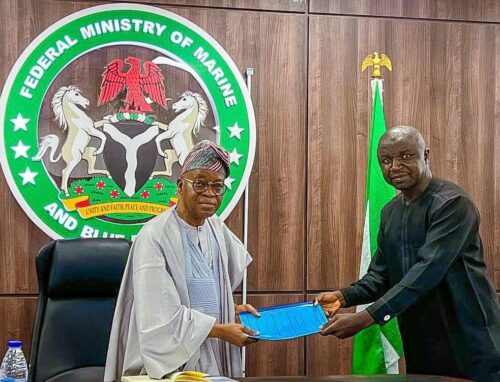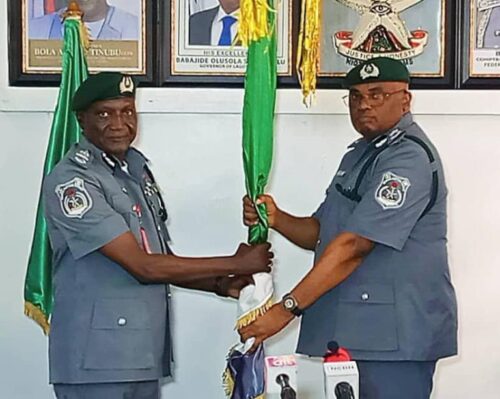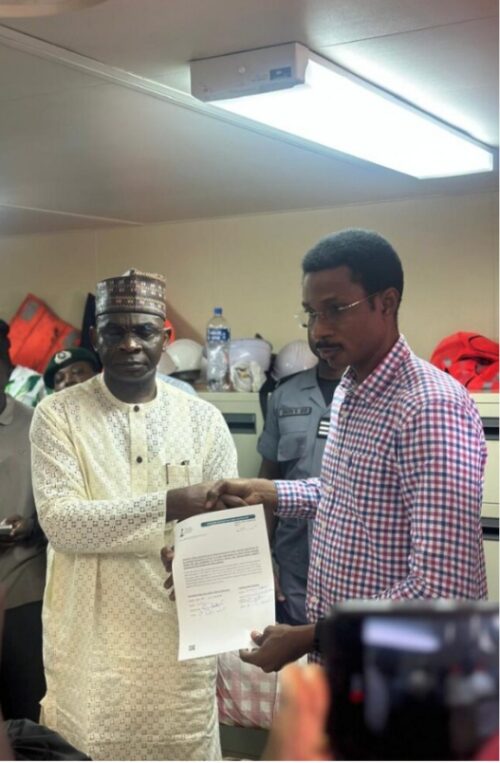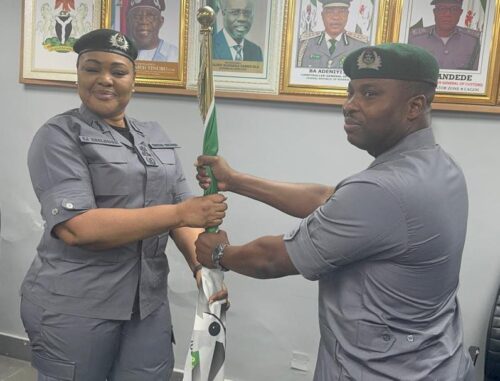Oyetola Pledges End to Fish Importation, Unveils Drive for Robust Local Production
Nifemi Coker

The Honourable Minister of Marine and Blue Economy, His Excellency Adegboyega Oyetola, CON, has reaffirmed the Federal Government’s resolve to end Nigeria’s reliance on imported fish by significantly boosting local production through a comprehensive national strategy.
Speaking at a high-level consultative meeting with fisheries cooperative groups in Abuja on Wednesday, Oyetola outlined a transformative vision for Nigeria’s aquaculture sector, positioning it as a key driver of food security, employment generation, and export growth.
In a statement by the Special Adviser on Media and Communication, Mr. Bolaji Akinola, the minister was quoted to have said: “Nigeria must chart a new path towards self-sufficiency in fish production.
“We are scaling up domestic output, cutting back on imports, and setting the foundation for a resilient and sustainable fisheries sector.”
The meeting, organised by the Federal Ministry of Marine and Blue Economy, brought together leaders from major industry associations including; the Fisheries Cooperative Federation of Nigeria (FCFN), Tilapia Aquaculture Developers Association of Nigeria (TADAN), Catfish Farmers Association of Nigeria (CAFAN), Women in Fish Farming and Aquaculture, and the Practicing Farmers Association of Nigeria.
Oyetola also announced targeted empowerment initiatives for women and youth in the fisheries space, including start-up grants and other support mechanisms.
These efforts, he noted, are in line with President Bola Ahmed Tinubu’s Renewed Hope Agenda, which emphasises inclusive economic growth and youth empowerment.
“Youth engagement in aquaculture is critical—not only for achieving food sufficiency but as a strategic tool to tackle unemployment,” he said. “We are committed to ensuring inclusive participation in this transformation journey.”
During the interactive session, stakeholders highlighted key challenges hampering sectoral growth. These included overfishing, environmental degradation, high input costs, inadequate cold storage, post-harvest losses, poor transportation and market access, low youth involvement, and multiple levies from local authorities.
Responding, the Minister assured that the Ministry is actively engaging with both domestic and international partners to address these issues. He revealed ongoing discussions with the World Bank to facilitate access to finance for fish farmers and a proposed collaboration with the Nigerian Agricultural Insurance Corporation (NAIC) to deliver affordable insurance packages for aquaculture operators.
“We’re also working closely with the Federal Ministry of Water Resources to replicate the successful aquaculture model at the Oyan Dam across other regions. Inter-ministerial collaboration will be central to our strategy,” Oyetola said.
He further emphasised that the meeting marks the beginning of an ongoing national dialogue aimed at transforming the aquaculture sector through sustained engagement and actionable outcomes.
In his welcome address, the Ministry’s Permanent Secretary, Mr Olufemi Oloruntola, described the gathering as a fulfilment of commitments made during the Ministry’s second-quarter citizens’ and stakeholders’ engagement held in Lagos on 3rd July.
He reiterated the government’s readiness to foster strong partnerships with cooperatives to drive sector-wide growth.
The Director of Fisheries and Aquaculture, Mr Wellington Omoragbon, also addressed participants, stressing the need to strengthen institutional frameworks and embrace business-oriented models to attract investment and improve productivity.
Participants hailed the engagement as timely and forward-thinking, expressing confidence that the consultative process would catalyse meaningful reforms.
The session concluded on a note of renewed hope for achieving self-sufficiency in fish production and transforming Nigeria into a net exporter in the years ahead.






